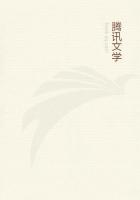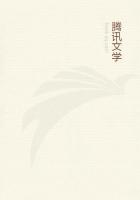Being again asked by some one: could courage be taught, or did it come by nature? he answered: I imagine that just as one body is by nature stronger than another body to encounter toils, so one soul by nature grows more robust than another soul in face of dangers. Certainly I do note that people brought up under the same condition of laws and customs differ greatly in respect of daring. Still my belief is that by learning and practice the natural aptitude may always be strengthened towards courage. It isclear, for instance, that Scythians or Thracians would not venture to take shield and spear and contend with Lacedaemonians; and it is equally evident that Lacedaemonians would demur to entering the lists of battle against Thracians if limited to their light shields and javelins, or against Scythians without some weapon more familiar than their bows and arrows. And as far as I can see, this principle holds generally: the natural differences of one man from another may be compensated by artificial progress, the result of care and attention. All which proves clearly that whether nature has endowed us with keener or blunter sensibilities, the duty of all alike is to learn and practise those things in which we would fain achieve distinction.
Or, "When some one retorted upon him with the question: 'Can courage be taught?'" and for this problem see IV. vi. 10, 11; "Symp."ii. 12; Plat. "Lach."; "Protag." 349; "Phaedr." 269 D; K. Joel, op. cit.
p. 325 foll.; Grote, "Plato," i. 468 foll., ii. 60; Jowett, "Plato," i. 77, 119; Newman, op. cit. i. 343.
Or, "against Thracians with light shields and javelins, or against Scythians with bows and arrows"; and for the national arms of these peoples respectively see Arist. "Lysistr." 563; "Anab." III. iv. 15; VI.
VII. passim.
Between wisdom and sobriety of soul (which is temperance) he drew no distinction. Was a man able on the one hand to recognise things beautiful and good sufficiently to live in them? Had he, on the other hand, knowledge of the "base and foul" so as to beware of them? If so, Socrates judged him to be wise at once and sound of soul (or temperate).
But cf. IV. vi. 7; K. Joel, op. cit. p. 363.
Reading {alla to . . . kai to}, or more lit. "he discovered the wise man and sound of soul in his power not only to recognise things 'beautiful and good,' but to live and move and have his being in them; as also in his gift of avoiding consciously things base." Or if {alla ton . . . kai ton . . .} transl. "The man who not only could recognise the beautiful and good, but lived, etc., in that world, and who morever consciously avoided things base, inthe judgment ofSocrates was wise and sound of soul." Cf. Plat."Charm."And being further questioned whether "he considered those who have the knowledge of right action, but do not apply it, to be wise and self- controlled?"--"Not a whit more," he answered, "than I consider them to be unwise and intemperate. Every one, I conceive, deliberately chooses what, within the limits open to him, he considers most conducive to his interest, and acts accordingly. I must hold therefore that those who act against rule and crookedly are neither wise nor self-controlled.
For the phrase "not a whit the more" see below, III. xii. 1; "Econ." xii. 18. Al. "I should by no means choose to consider them wise and self-controlled rather than foolish and intemperate." "Who cannot draw a straight line, ethically speaking."He said that justice, moreover, and all other virtue is wisdom. That is to say, things just, and all things else that are done with virtue, are "beautiful and good"; and neither will those who know these things deliberately choose aught else in their stead, nor will he who lacks the special knowledge of them be able to do them, but even if he makes the attempt he will miss the mark and fail. So the wise alone can perform the things which are "beautiful and good"; they that are unwise cannot, but even if they try they fail. Therefore, since all things just, and generally all things "beautiful and good," are wrought with virtue, it is clear that justice and all other virtue is wisdom.
On the other hand, madness (he maintained) was the opposite to wisdom; not that he regarded ****** ignorance as madness, but he put it thus: for a man to be ignorant of himself, to imagine and suppose that he knows what he knows not, was (he argued), if not madness itself, yet something very like it. The mass of men no doubt hold a different language: if a man is all abroad on some matter of which the mass of mankind are ignorant, they do not pronounce him "mad"; but a like aberration of mind, if only it be about matters within the scope of ordinary knowledge, they call madness. For instance, any one who imagined himself too tall to pass under a gateway of the Long Wall without stooping, or so strong as to try to lift a house, or to attempt any other obviousimpossibility, is a madman according to them; but in the popular sense he is not mad, if his obliquity is confined to small matters. In fact, just as strong desire goes by the name of passion in popular parlance, so mental obliquity on a grand scale is entitled madness.














